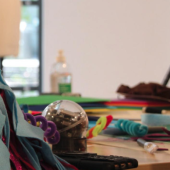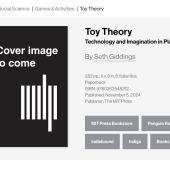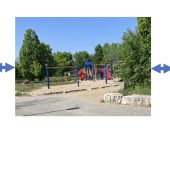More on this new project soon, and plenty of posts to follow. I’ll write up a clearer outline of what we’re doing, but here’s a chunk of a press release to be going on with:
Collaborations in digital media and dance between the Department of Creative Arts and leading arts organisations and technology partners in the West have just won funding from a prestigious national arts research programme. The Digital R&D Fund is funded by NESTA, Arts & Humanities Research Council and the National Lottery through Arts Council England.
One of two successful bids involving UWE, the project – awarded just under £125,000, will see UWE working with South West dance development agency Pavilion Dance and Bristol-based Mobile Pie, whose location-based gaming app will encourage the public to geo-tag videos of themselves dancing.
Dr Seth Giddings, of Creative Industries and the Digital Cultures Research Centre, is the research lead on the project.
The idea is to develop an app to encourage more people to dance and to reach people who wouldn’t classify themselves as dancers.
Users will video themselves dancing in a specific location which they will tag. They will upload the video to a microsite, view, share and rate other videos, challenge other users or retag locations. A supporting website will enable deeper engagement with the dance sector, providing information about local dance providers, dancers, companies and venues. Users could receive messages about events close by such as a hip hop class or flamenco performance.
Regional Producer Zannah Doan, of Pavilion Dance South West said,
Pavilion Dance South West are seizing the opportunity to work with Mobile Pie and Dr Giddings to produce this app and see how people play with it. Each partner brings their unique expertise to the table and our aim is to produce an enjoyable dance game app which enables users to dance more and to see more dance. We’ll then share our findings so that this concept can be considered by other art forms.
UWE’s double success means it has two of the first nine projects to benefit from the £7 million Digital R&D Programme for the Arts. Funded jointly by Nesta, the Arts Council England (ACE) and the Arts and Humanities Research Council (AHRC), the fund supports research aimed at finding out how digital technology can be used to reach new audiences and explore new business models in the arts.
For more information on the fund see
http://www.nesta.org.uk/areas_of_work/creative_economy/digital_rnd



